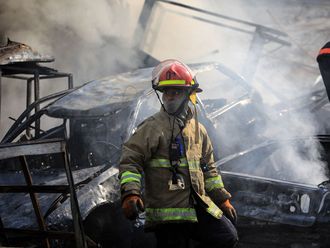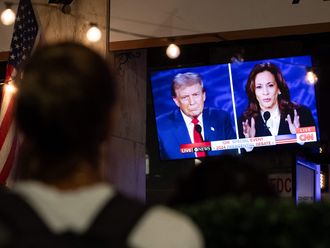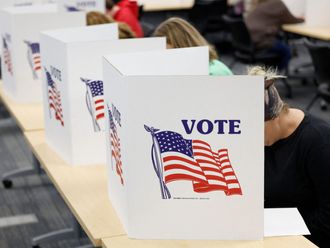Amman: The Muslim Brotherhood called on Syrians to take to the streets on Friday and help the besieged city of Deraa, where a rights group said civilian deaths from a tank-backed army attack rose to 50.
It was the first time that the Brotherhood, ruthlessly crushed along with secular leftist movements under the rule of late President Hafez Al Assad, had called directly for protests in Syria since pro-democracy demonstrations against Assad's son, President Bashar Al Assad, erupted six weeks ago.
A declaration by the Brotherhood, sent to Reuters by its leadership in exile on Thursday, said: "Do not let the regime besiege your compatriots. Chant with one voice for freedom and dignity. Do not allow the tyrant to enslave you. God is great."
In Deraa itself, defiant residents said the army assault had failed to silence the southern city of 120,000 people.
"Despite everything people came out after evening prayers yesterday and were crying 'God is Greater' from rooftops. We want to resist them even if it's only with our voices," a man who identified himself only as Abu Zaid said by telephone.
"The villages around Deraa are all planning to flock to the city in solidarity despite the roadblocks and the siege around the city," said another resident called Jasem.
Witnesses said roads into Damascus were closed on Friday morning, to prevent people marching from the rural areas around the capital into the city.
Wissam Tarif, director of the Insan human rights organisation, said snipers were visible in several Damascus suburbs, including Harasta, Daraya, and Douma from where protesters had tried to march into the centre of the capital in the last two weeks, only to be met by bullets.
Another witness said Republican Guard trucks equipped with machine guns patrolled the circular road around Damascus.
The protests have drawn a cross section of Syrian society, which has been under Baath Party rule for the last 48 years. The younger Assad preserved the autocratic political system he inherited in 2000 while the family expanded its control over Syria's struggling economy.
The upheaval could have heavy regional repercussions since Syria straddles the fault lines of the Middle East conflict, maintaining an anti-Israel alliance with Iran and backing the Hezbollah and Hamas militant movements.
The Brotherhood said accusations by Syrian authorities that militant Islamists were behind the unrest were aimed at fomenting civil war and undermining nationwide demands for political freedoms and an end to corruption.












